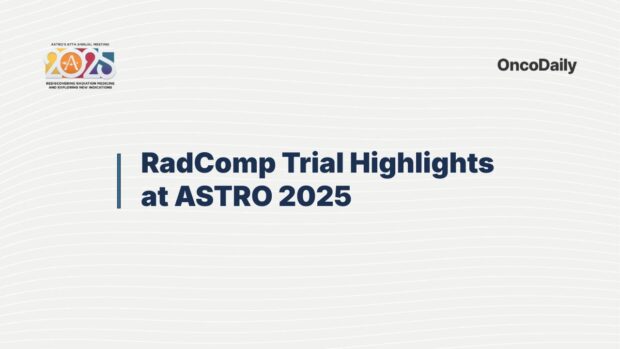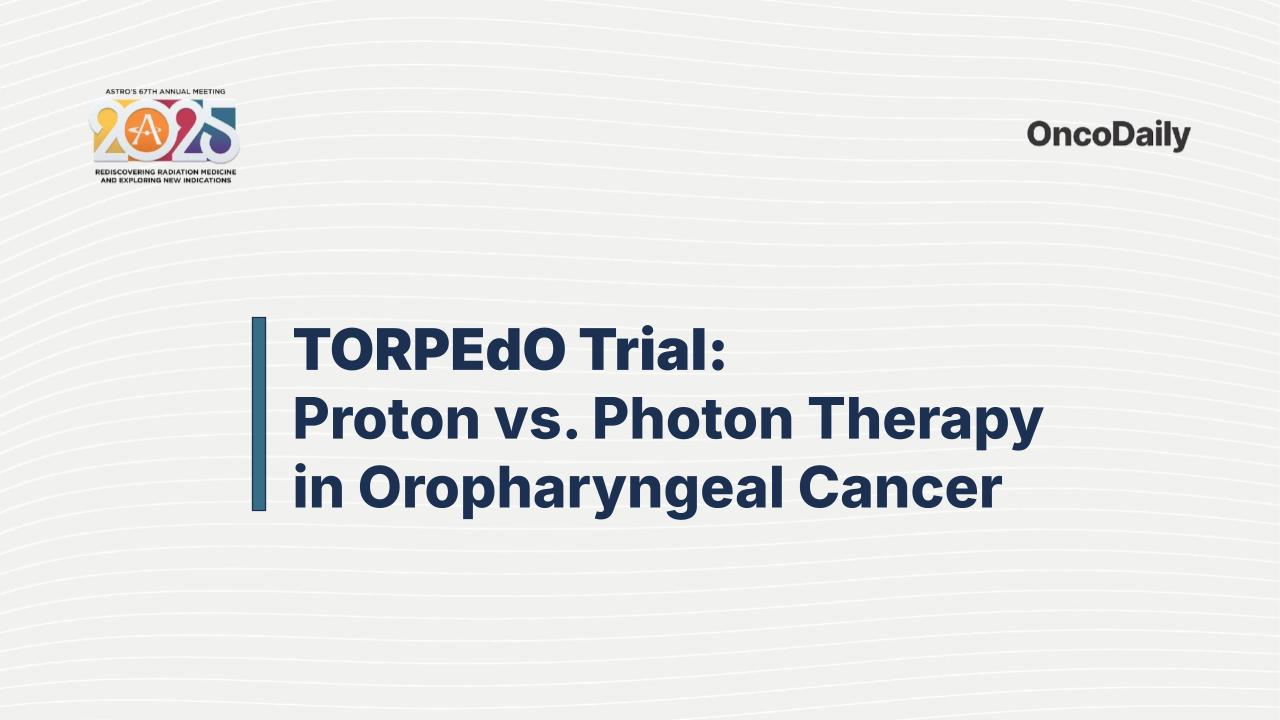Authors: D. Thomson, J. Price, M. Tyler, M.J. Beasley, J. Lester, C.M. Nutting, N. Palaniappan, R.J. Prestwich, R. Shanmugasundaram, A. Thompson, H. Bulbeck, J.A. Langendijk, M. Lowe, J. Tyler, K. Chiu, J. Christian, C. Cruickshank, D. Gardiner, C.M.L. West, and E. Hall
The TORPEdO trial (CRUK/18/010), the first phase III randomized study of its kind in the UK, has reported primary results as Late-Breaking Abstract during ASTRO 2025 comparing intensity-modulated proton therapy (IMPT) with state-of-the-art intensity-modulated radiotherapy (IMRT) for patients with locally advanced oropharyngeal squamous cell carcinoma (OPSCC).
Study design
Conducted across 20 centers in the UK, the trial enrolled 205 patients with OPSCC requiring definitive bilateral chemoradiation. Participants were randomized in a 2:1 ratio to receive either IMPT (n=136) or IMRT (n=69).
Both groups were treated with 70 Gy in 33 daily fractions over 6.5 weeks, combined with two cycles of high-dose cisplatin chemotherapy (100 mg/m² every 3 weeks). The co-primary endpoints were carefully chosen to capture both clinician-assessed and patient-reported outcomes at 12 months after therapy:
- Clinician-reported: gastrostomy dependence or CTCAE grade 3 weight loss (≥20% body weight loss).
- Patient-reported: University of Washington Quality of Life (UW-QOL) composite score (saliva, taste, chewing, swallowing, speech, and appearance).
Secondary endpoints included swallow-specific outcomes via the MD Anderson Dysphagia Inventory (MDADI), along with loco-regional recurrence and overall survival.
Read More ASTRO 2025 Late-Breaking Abstracts Here
Results
- Feeding tube dependence: Extremely low and identical in both groups – IMPT 1.7% vs. IMRT 1.7%.
- Severe weight loss: More frequent with protons – IMPT 18.2% vs. IMRT 5.7% (OR 2.8, 97.5% CI 0.8–10.4, p=0.08).
- Patient-reported quality of life: UW-QOL composite scores were nearly identical between arms – 78.3 (IMPT) vs. 77.1 (IMRT).
- Swallowing outcomes: MDADI scores showed no difference – 79.4 vs. 79.5 at 12 months.
- Disease outcomes: At a median follow-up of 27 months, loco-regional control and overall survival remained excellent in both groups, with two-year rates close to 95%.
Takeaway
The TORPEdO trial provides the most rigorous evidence to date on the role of protons in OPSCC. Despite the promise of proton therapy in reducing normal tissue dose, this phase III trial did not demonstrate reductions in gastrostomy dependence, severe weight loss, or long-term patient-reported quality of life compared with modern IMRT.
Investigators conclude that there is no requirement for IMPT as an alternative to high-quality IMRT in locally advanced OPSCC, reinforcing the effectiveness of contemporary photon techniques when delivered to trial standards.

Read RadComp Trial Highlights Here
Written By Aren Karapetyan, MD


